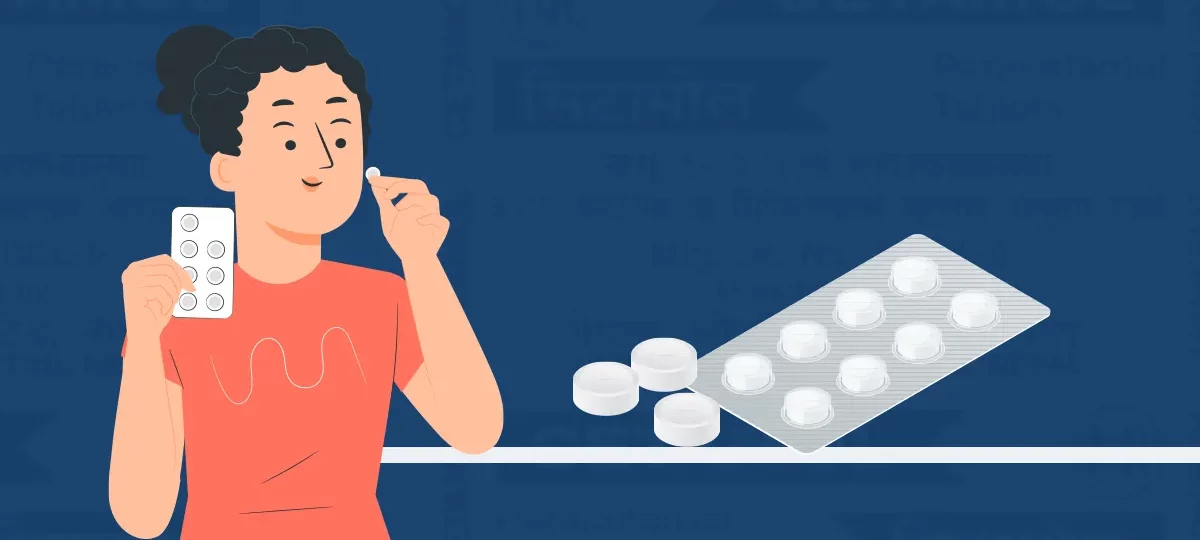0%

Image for Representation
KATHMANDU: In recent times, an alarming trend of self-medication has emerged, with individuals resorting to over-the-counter remedies for minor ailments.
Paracetamol, commonly known as Cetamol, is frequently misused, with many people consuming it haphazardly.
The practice of overconsumption, taking one pill after another, persists even when symptoms persist.
Furthermore, the casual sale of this medication, akin to chocolate, by drug vendors only exacerbates the issue.
Given its ready availability and apparent lack of immediate side effects, Cetamol has become a convenient go-to remedy for many.
Pharmacies contribute to the problem by dispensing Cetamol without thorough checks.
Paracetamol is a commonly used medicine for home-based relief, but medical experts caution against consuming it indiscriminately in one go.
However, the continuous usage of drugs meant for short-term relief poses severe health risks, as medical experts caution that excessive use can adversely affect vital organs, including the kidneys and liver.
Addressing the dosage discrepancy is crucial. Dr. Akhanda Upadhyay, Medical Officer of District Hospital Dolpa, emphasizes that adjusting the amount according to age is essential.
Small doses may be innocuous, but excessive consumption can lead to liver damage, and in some cases, prove fatal.
Health professionals advise that using more than three grams of paracetamol per day can be perilous, underscoring the importance of consulting doctors and tailoring usage to individual weight.
Pregnant women must exercise caution, as unsupervised paracetamol consumption can impede the physical development of the unborn child.
The prolonged use of this pain-relieving medication can also inflict damage on the kidneys.
Additionally, chronic use of Cetamol may induce gas problems, indigestion, or a sense of heaviness in the stomach.
Some individuals may experience skin redness, itching, burning, and other adverse effects due to excessive consumption.
Guidelines recommend a dose of 325 to 650 mg of Cetamol every 4 to 6 hours.
For fever management, 500 mg of paracetamol should only be taken six hours after its onset.
Special care is necessary when administering Cetamol to small children, with specific dosage recommendations based on age.
Dr. Upadhyay advises against taking Cetamol on an empty stomach, as it may heighten the risk of gastritis.
In cases where children fall ill, there is a concerning trend of obtaining medicine from general medical centers without proper guidance, potentially exacerbating health issues.
In conclusion, exercising caution and adhering to recommended guidelines are crucial in avoiding the potential dangers associated with indiscriminate Cetamol use.
Dangers of Self-Medication
Paracetamol is a commonly used medicine for home-based relief, but medical experts caution against consuming it indiscriminately in one go.
“If you need to take Paracetamol regularly, it’s crucial to consult a doctor,” advises Upadhyay.
Continuous use of Cetamol is linked to potential liver damage, making professional guidance essential.
While many use Cetamol to alleviate fever, it is imperative to seek medical attention if the fever persists for three consecutive days or if accompanied by persistent body aches.
Regular health check-ups are advised in such cases, and reliance on Cetamol without proper consultation is discouraged.
The overarching message from healthcare professionals is clear: refrain from self-administering any medication, including Cetamol.
Many readily available medicines, like Metron for diarrhea or cough syrup for colds, are purchased without seeking a doctor’s advice.
Dr. Upadhyay emphasizes the risks associated with this practice, especially in rural areas and among children, where such incidents are alarmingly common.
In cases where children fall ill, there is a concerning trend of obtaining medicine from general medical centers without proper guidance, potentially exacerbating health issues.
Dr. Upadhyay emphasizes the importance of seeking professional medical advice to address health concerns promptly and avoid complications arising from self-medication.